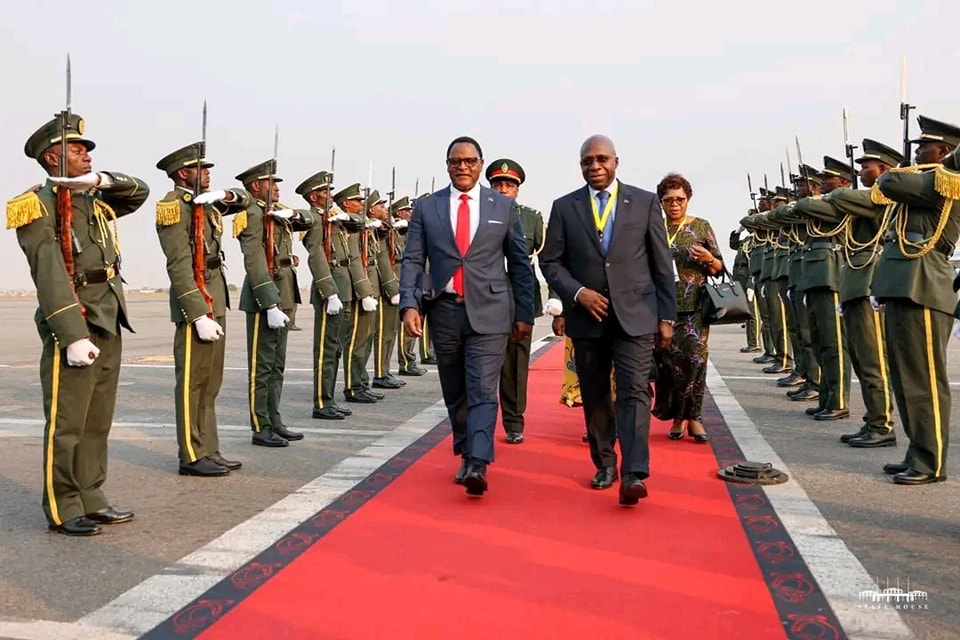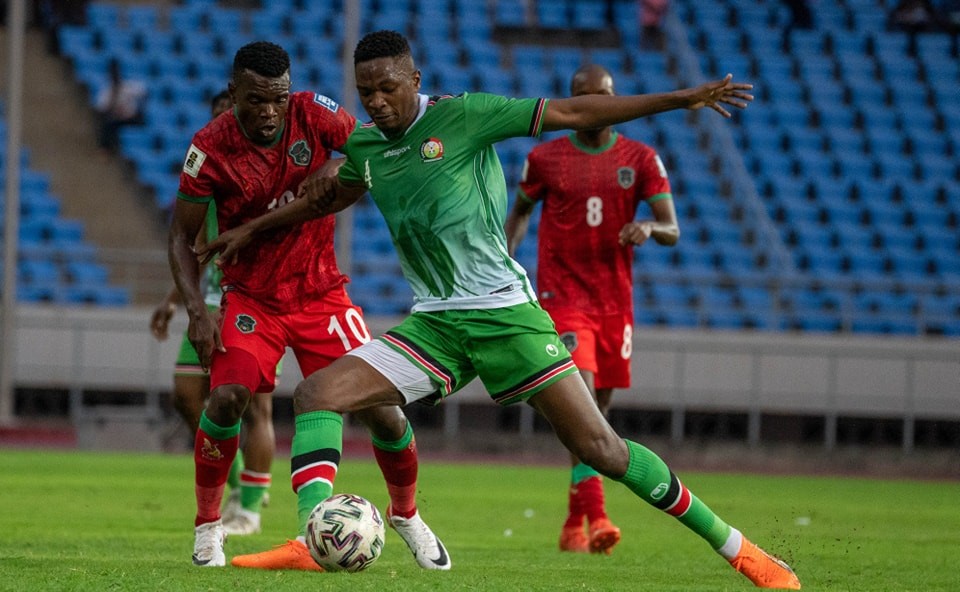Chakwera takes debt restructuring to Brics
President Lazarus Chakwera says he will take advantage of the Brics Summit in South Africa to negotiate a debt repayment plan with the Government of India.
Malawi owes India about $136 million (about K148.9 billion).

Brics, a grouping comprising Brazil, Russia, India, China and South Africa, is this year expected to cover trade and investment facilitation, sustainable development, innovation and global governance reforms.
Speaking yesterday during departure for his two-legged trip that will first take him to Luanda in Angola for the 43rd Southern African Development Community (Sadc) Ordinary Summit of Heads of State and Government and later South Africa for the 15th Brics-Plus meetings slated for 22 to 24 August, the President said he would leverage the Brics meeting to discuss debt restructuring with India.
He acknowledged that the debts are unsustainably high.
Said Chakwera: “I want to engage the Indian Government. We want to be able to move away from something that is hanging on our neck in order for us to really begin our developmental programme with earnest.”
In a desperate bid to find means of restructuring the K3.47 trillion external debt, the President has previously met African Export-Import Bank (Afreximbank) and Exim Bank of China.
Debt restructuring is key to deliver the Extended Credit Facility (ECF) programme with the International Monetary Fund (IMF).
In separate interviews yesterday, economists have said besides focusing on debt restructuring, it is high time Malawi started coming up with areas of investment that it has comparative a advantage and promote the same to potential investors.
Economist Dr Farai Chigaru said yesterday that besides talk on debt restructuring, Chakwera and his team should also look at potential investors, whose injection into the country could help repay debts.
He said the starting point for Malawi is to identify areas where it has comparative advantage over other countries and look for those investors who can fill the shoes rather than simply inviting people without mapping areas.
Chigaru, who teaches economics at the University of Malawi (Unima), said: “We need to indentify the right sectors that need to be invested in, those that Malawi has comparative advantage. Then look at investors who can get into those sectors, and lobby for deals. If we find investors that would invest in wrong sectors, these are not for us.
“We do not have control over debt restructuring, but on investment. A firm has production cost [internal] and transactional [external] cost which government has to move into to help like infrastructure. If there is investment like in roads and energy, transactional cost will
be lower, making more profits and money for the government to pay debts.”
In a separate interview, Malawi University of Business and Applied Sciences Associate Professor Betchani Tchereni hoped that there will not be cheap talk at the Brics.
“If we think about huge mining projects, industrialisation activities and exports of our agriculture products, these are countries we should be thinking about and talking to,” he said.
Like Chigaru, Tchereni said there is need to clearly define areas of investment as well as follow up on such deals whenever they are signed.
Earlier, Minister of Information and Digitisation Moses Kunkuyu said the summit presents an opportunity for the President to engage at a top level of leaders, strengthen trade ties with a wide range of powerful, and emerging market economies.
Besides India, Malawi owes Afreximbank about $757 million (about K828.9 billion) in foreign debt and about $145 million (about K158.77 billion) is owed to Trade and Development Bank, along with millions of arrears.
China, through its Exim Bank, is the largest bilateral creditor to Malawi and the third among external financiers, accounting for roughly $218 million (about K238.7 billion) or 8.34 percent of the foreign loans that the Malawi Government has contracted.
The World Bank, through the International Development Association, remains the largest creditor, constituting nearly $1.3 billion or 47.61 percent of the external debt stock followed by the African Development Bank through the African Development Fund with $420 million or equivalent to 16.10 percent of Malawi’s foreign loans.
Malawi’s public debt stands at K7.9 trillion as at December 2022, with K4.43 trillion being domestic debt while K3.47 trillion is external debt.





